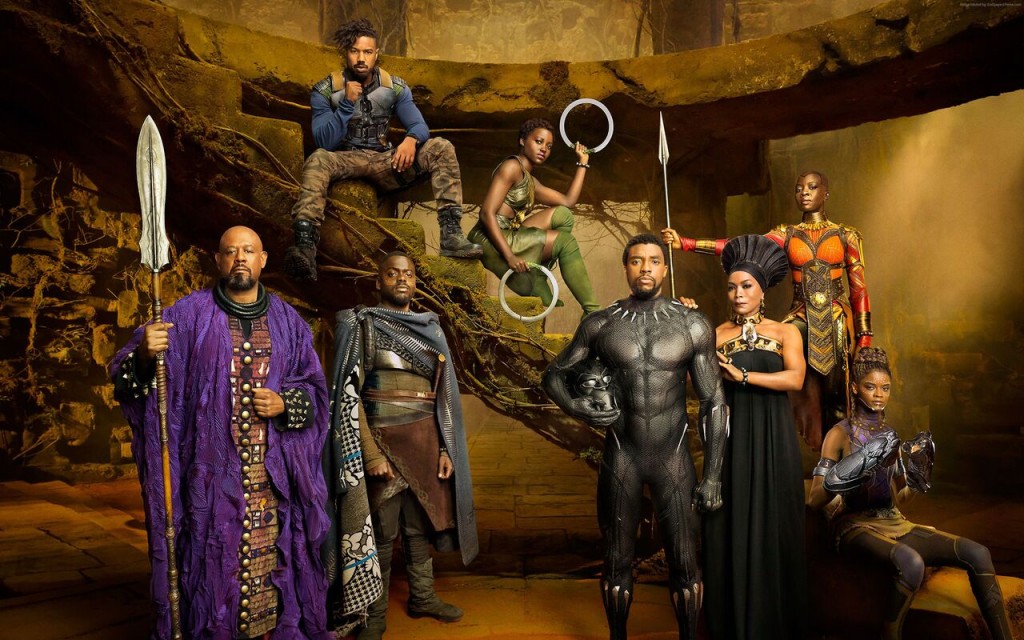
No other film can stand up to it
By Greg Waldock, Staff Writer
Black Panther was unlike any movie I’ve ever seen. Walking out of the theatre, I was torn between thinking, “How did a movie like this ever get made?” and, “Why did it take so long for a movie like this to happen?” It’s hard to believe no major Afrofuturism movie had ever been made previously, and no superhero movie with an all-black cast had happened before (Blade barely counts as a superhero movie). Black Panther is innovative, ingenious, and, in my opinion, not just the best movie in the Marvel Cinematic Universe (MCU), but the best comic book movie ever made.
That’s a prestigious title. To back it up, let’s look at the competitors. Christopher Nolan’s The Dark Knight is classically upheld as the best comic book movie, with V for Vendetta and the Guardians of the Galaxy series also in contention. For me, Black Panther edges out on these by sheer ballsiness. The Dark Knight looks at legal philosophy, V for Vendetta is about rebellion and freedom, Guardians of the Galaxy Vol. 1 and 2 are about relationships and emotional trauma, but Black Panther is entirely about the effects of the slave trade, colonialism, and neocolonialism. It’s an incredibly serious and relevant topic that has largely been ignored by film outside of movies about slavery, and certainly never approached by a superhero movie. That willingness to explore such a dark and bleak subject and still manage to be a good comic book adaptation pushed it right ahead of the competition for me.
This movie balances a lot of things. It’s a drama, a superhero movie, an addition to the MCU, an introduction to Wakanda and T’Challa’s family, and is still fun to watch. It could have ended up like Age of Ultron, with way too many spinning plates turning it into an incoherent mess. Fortunately, director Brian Coogler and the rest of the cast and crew pulled through and produced something amazing. The writing is tight, the acting is superb, the drama is Shakespearean, and the comedy adds to the characters. It also successfully adapts two different Black Panther comic runs, one by Christopher Priest and another by Ta-Nehisi Coates, turning into a successful adaptation as well as a successful movie.
Finally, the potential impact it can have on future movies is enormous. For a long time, it was assumed that films with an all-black cast, films set in Africa, or films about global prejudice would be at an automatic disadvantage at the box office. Black Panther proves that assumption wrong. Maybe it’s because young people care more about social issues than they had previously, maybe it’s because a certain terrible presidency is forcing people to discuss race more openly, or maybe it’s literally impossible for an MCU movie to not make money. Whatever the cause, Black Panther has opened the floodgates for mature examinations of race and politics inside what has historically been considered the least mature film genre. Comic books are loaded with stories that emphasize the horrors of Western imperialism over the centuries, or about the racism that has built itself into the basis of our society. It seems like it’s finally time for comic book movies to cover these topics, too.



